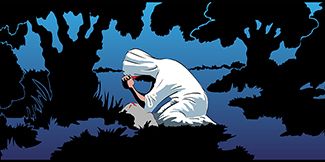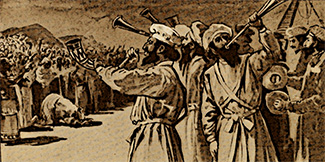Sabbath History
Sunday in the Bible

Many people have pointed to some instances in the New Testament in which “the first day of the week,” Sunday, is mentioned as a reason for worshiping—keeping the Sabbath—on Sunday. But do any one of these eight passages really show or even infer that the Sabbath was changed to Sunday?
To answer these questions, let’s look at each one of these Scripture passages in question.
1. “Now on the first day of the week, very early in the morning, they, and certain other women with them, came to the tomb bringing the spices which they had prepared. But they found the stone rolled away from the tomb” (Luke 24:1, 2).
This story relates the story of Jesus’ followers going to His tomb to finish the sad work of anointing His body for burial. With the Sabbath closing in on them the day before, these women hadn’t had time on Friday to anoint the Lord immediately after His death. Earlier verses confirm that “they rested on the Sabbath according to the commandment” (Luke 23:56). Even in their grief, they honored Jesus by keeping all His commandments, including the Sabbath.
There are four more passages that refer to the resurrection of Jesus and are similar in nature to the verses above. They are …
2. Matthew 28:1
3. Mark 16:1–3
4. Mark 16:9
5. John 20:1
These verse confirm that Jesus rested in the grave on Saturday and appeared to His disciples in the morning on the first day of week. (See: Should we worship on Sunday to honor the resurrection.)
Now let’s look at the remaining three passages:
6. “Then, the same day at evening, being the first day of the week, when the doors were shut where the disciples were assembled, for fear of the Jews, Jesus came and stood in the midst, and said to them, ‘Peace be with you’ ”(John 20:19).
Some claim the disciples met for Sunday worship, but if you examine the verse carefully, you’ll notice the words “for fear of the Jews”—that is the key phrase in fully understanding this passage. This was no Sunday worship fellowship. The disciples were afraid and were hiding from the Jews! Nothing in the verse hints at the first day being holy.
7. “Now concerning the collection for the saints, as I have given orders to the churches of Galatia, so you must do also: On the first day of the week let each one of you lay something aside, storing up as he may prosper, that there be no collections when I come” (1 Corinthians 16:1, 2).
Here, Paul is suggesting that believers set aside a gift for the needy brethren. There’s no meeting inferred here. He’s simply asking them to store up a donation at home to be turned in at a later date.
8. “Now on the first day of the week, when the disciples came together to break bread, Paul, ready to depart the next day, spoke to them and continued his message until midnight” (Acts 20:7).
Biblically, days begin at sundown, so this turns out to be the dark part of Sunday—what we would call Saturday night. At daybreak, when it is still Sunday, Paul sets off on a long hike to catch a ride on a ship (verse 13). If Sunday were the Lord’s Day, he wouldn’t have been starting on a journey.
And that’s it …
These are the only references to Sunday in the New Testament. None of these passages refer to the first day of the week as the Lord’s Day, and none of the verses in any way imply that the Sabbath was changed to Sunday.






